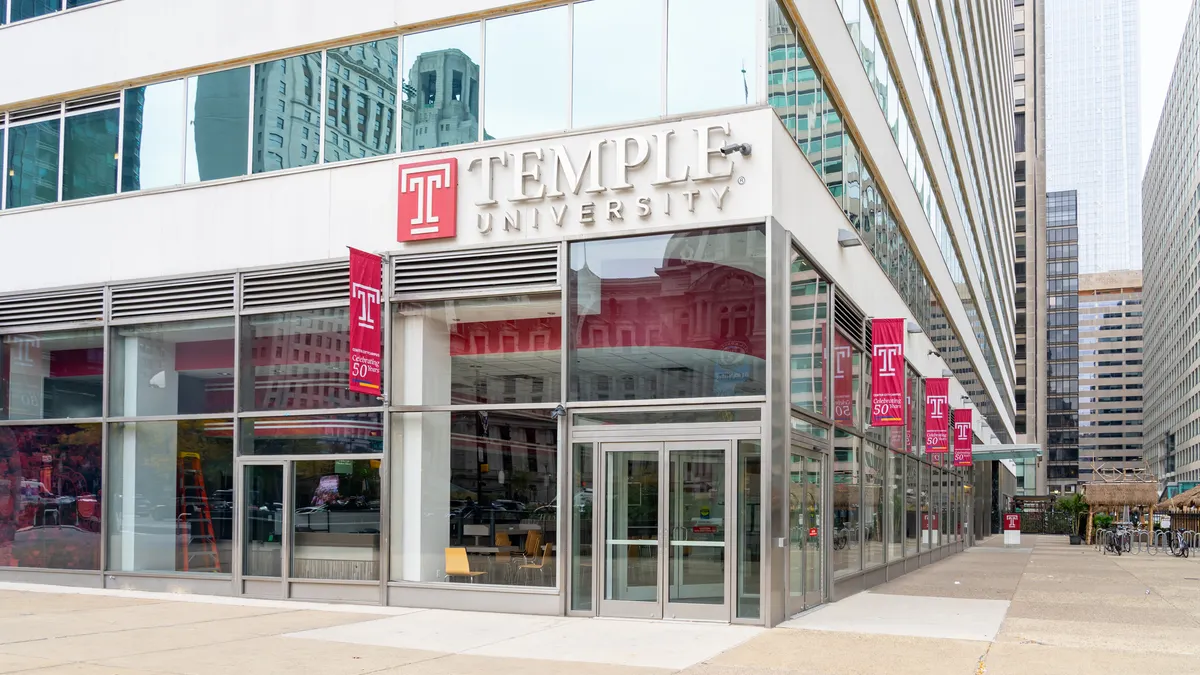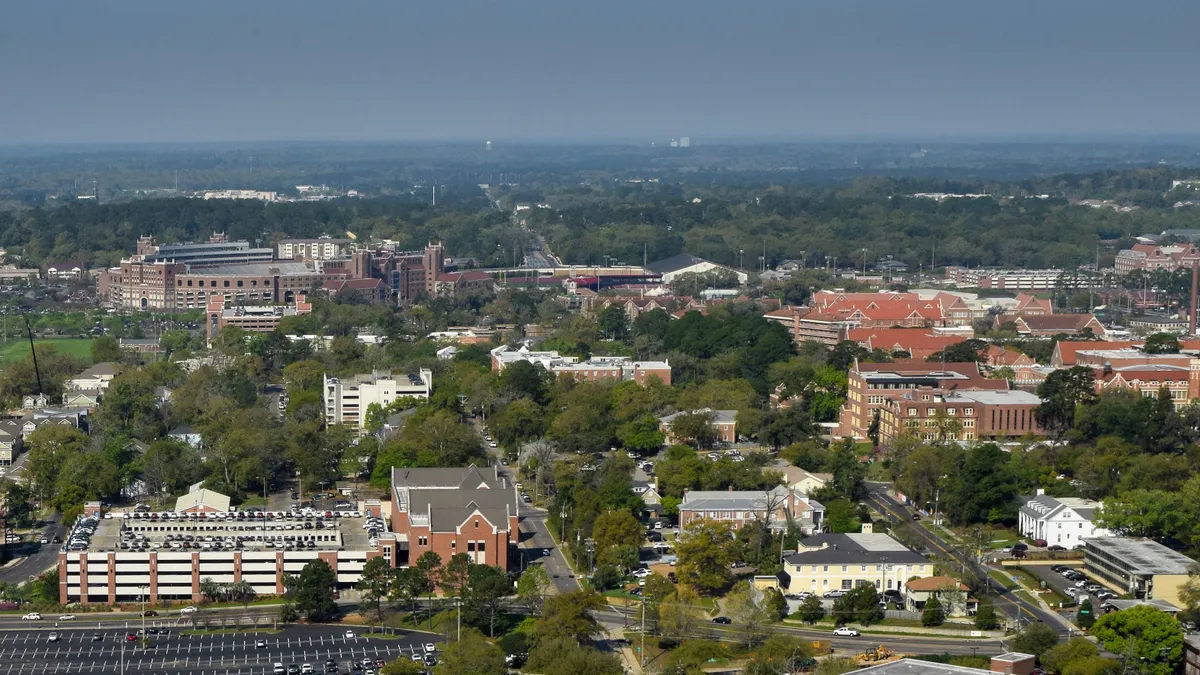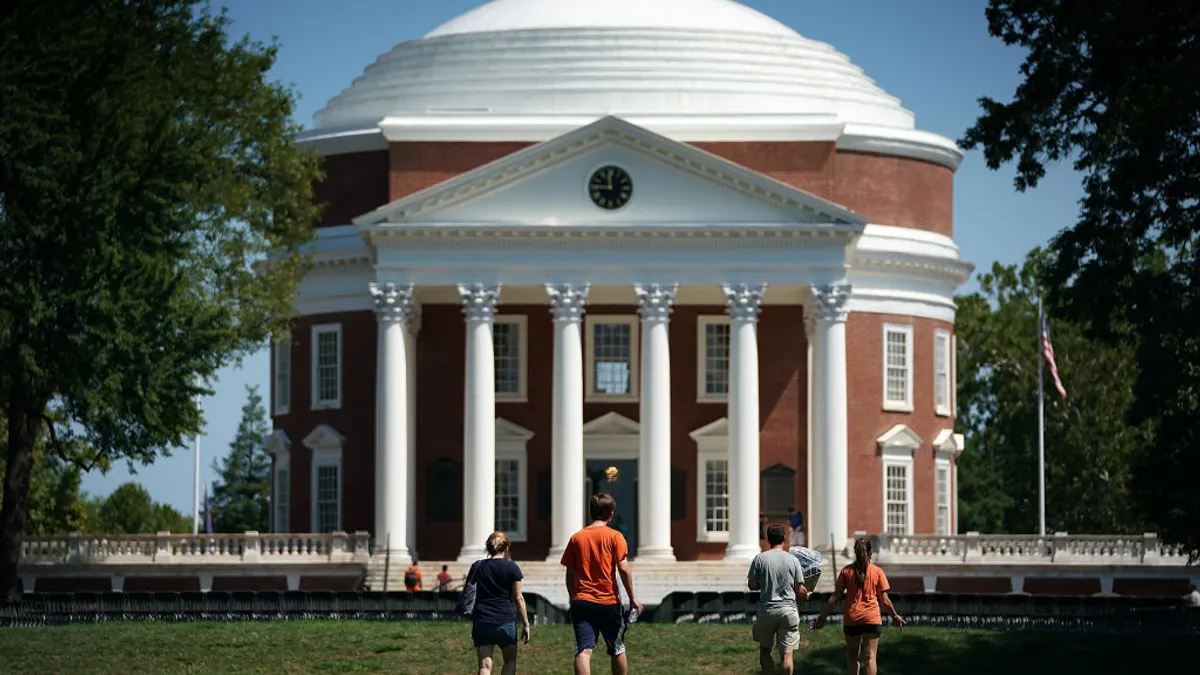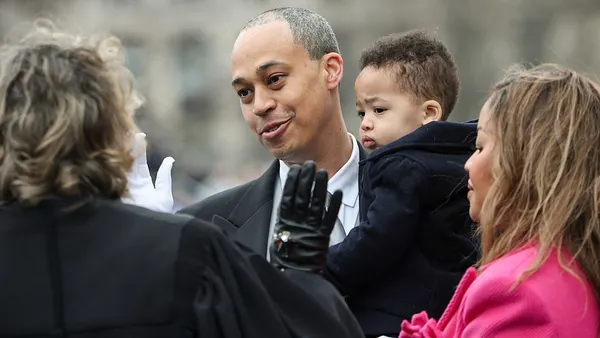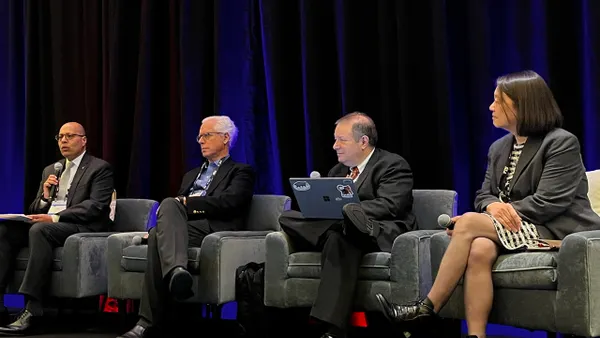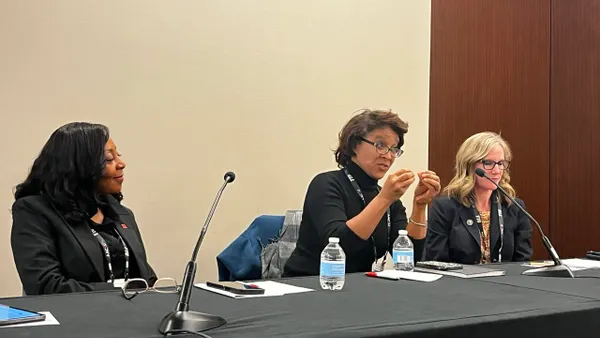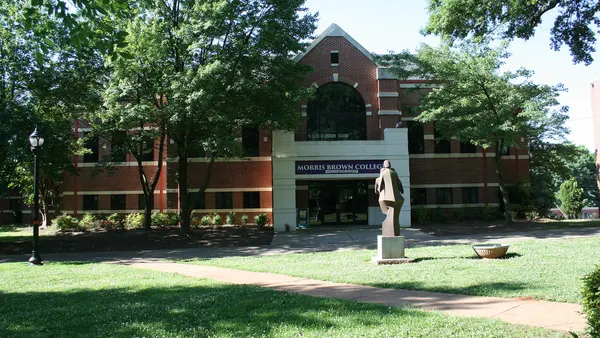Dive Brief:
- Temple University in Philadelphia plans to lay off about 50 staff members as it looks to cut a budget deficit previously forecasted at $60 million down to $27 million, according to a community message Friday from university President John Fry.
- The layoffs — amounting to nearly 1% of Temple’s workforce — are part of a larger reduction of 190 positions across the university, the majority of which were eliminated via attrition, retirement or cutting vacant roles. None of the layoffs impact faculty members, a spokesperson said Monday.
- Temple is also “closely monitoring” the potential impacts of changes to the federal student loan and Pell Grant programs set to start in the 2026-27 academic year following the implementation of Republicans’ massive new spending bill, Fry said.
Dive Insight:
Temple leaders signaled in June that job cuts were likely as officials tried to reduce the university’s structural budget. At the time, Fry pointed to a long-term dip in enrollment, specifically a decline of 10,000 students since 2017, with much of the loss coming during the pandemic. As of fall 2023, Temple had just over 30,200 students.
However, the public university just logged its highest-ever number of first-year student deposits — 6,313 — indicating a second year of growth in Temple’s first-year class on top of a projected overall enrollment increase of roughly 200 students, according to Fry’s announcement. That would mark the first time the university’s student body has grown since 2017.
But for Temple, the historic enrollment decline has meant a drop of $200 million in tuition revenue, putting pressure on the university to reduce its expenses — the large majority of which are tied to employee compensation and benefits. And so to cut the university’s deficit, leaders have looked to its workforce.
Of the coming layoffs, Fry said “considerable efforts were made to ensure that the reduction to our current workforce was as minimal as possible.”
“It is my promise that care will be taken to ensure that any employee’s separation from the university will be handled as equitably and compassionately as possible,” he added.
In his message, Fry described “significant financial challenges” facing Temple, stemming from both its structural deficit as well as “uncertainty at the federal level.”
Fry highlighted the changes set for the federal student aid program without elaborating on their potential impact on Temple. Those changes include new limits on Pell Grant eligibility, caps on student and parent borrowing, and an elimination of Grad PLUS loans, which allow graduate students to take out loans up to their cost of attendance.
He also announced the roster of a 13-member university advisory group made up of faculty, students and staff to, as he put it, “help us navigate this complex and evolving environment.”
Wide swaths of the higher education world are making workforce and spending cuts as the Trump administration takes a hatchet to the federal research funding system. Colleges are also bracing for further financial impacts from other federal policy changes in Republicans’ spending and tax bill, including an increased endowment tax and Medicaid cuts that will land hard on many university hospital systems.


